Welcome To Esports 101 – Remembering The 2016 Overwatch World Cup
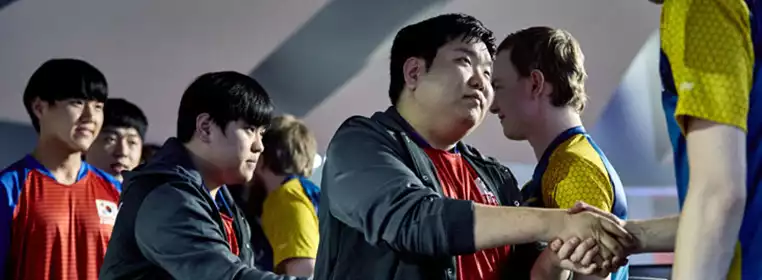
If you look at moments in Overwatch history, you can consider the 2016 Overwatch World Cup to be the event that really kicked off the game's esports scene in the west. Taking place during Blizzcon’s tenth anniversary, the 2016 OWWC was the place where casual interest and competitive interest in the game as an esport collided. For many fans, this was their first exposure to international competition in Overwatch, or even just Overwatch competition itself. Since this was the first and only year to use fan voting as the way to construct the national rosters, many who didn’t watch Overwatch esports initially could suddenly become invested when their favourite content creators like Brandon "Seagull" Larned or Elliott “Muselk” Watkins became the captains for their respective nations. With some of the biggest Overwatch personalities of 2016 leading their countries, these players became the first few ways for fans to start connecting with the storylines and ecosystem of Overwatch esports.
But while it ushered in new connections and stories to new players and fans, it also heralded in the era of something Overwatch fans soon became increasingly familiar with, South Korean dominance. While exposing fans to the joys of esports, the World Cup also exposed fans to the all-too-common shortcomings of the west in comparison to South Korea. Here is where many fans got a dose of reality, that no matter how good they thought their favourite players were, they had a lot to learn before being able to match up against esports’ finest region.
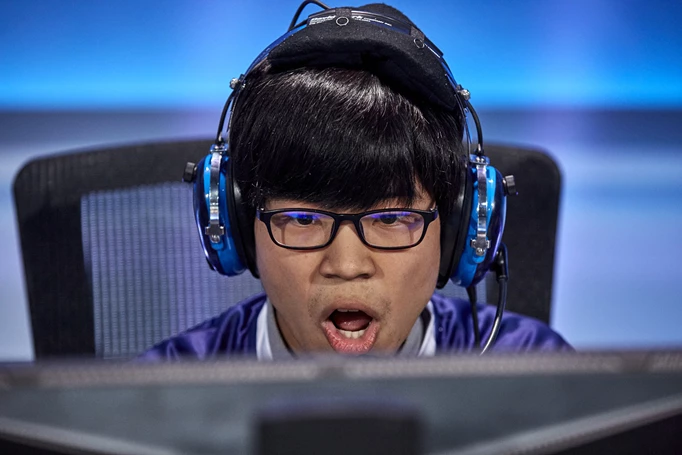
 Click to enlarge
Click to enlargeUnlike the following three iterations of the World Cup, where the teams are formed through trials or decisions made by fan-voted coaches or committees, 2016’s national teams were constructed straight through a public fan vote: the most popular player in their country becoming team captain, three other players were voted in, and the captain chose the two extra players to round out the roster. And if there’s anything fans are known for, it's having the highest level of competitive knowledge in a game. This type of format ultimately led to a unique mixture of messy, unrefined early Overwatch that made a game either incredible to watch, or a travesty by today’s standards.
Sixteen national teams made it to Blizzcon and were formed of a mix between the most popular Overwatch content creators at the time, and actual professional players who ground the game at the highest level. This meant a country’s representation at the event was essentially a roll of the dice, where hopefully that nation’s most well-known players were also the best the country had to offer.
For instance, in Group A which consisted of Canada, Brazil, Sweden, and Spain, Canada and Brazil only had three or four professional players compared to Sweden and Spain both fielding six professional players on each team.
Needless to say, this format didn’t end up working out in every nation's favour. However, there were some surprisingly uplifting results that came from some of the matches that had these weird hybrids of pros and amateurs. For instance, even though France fell out early to eventual runner-ups, Russia, in the quarterfinals, they put on entertaining performances even with three content creators on the roster, one of whom, Riley "Kitty" Frost, won the MVP vote for their match.
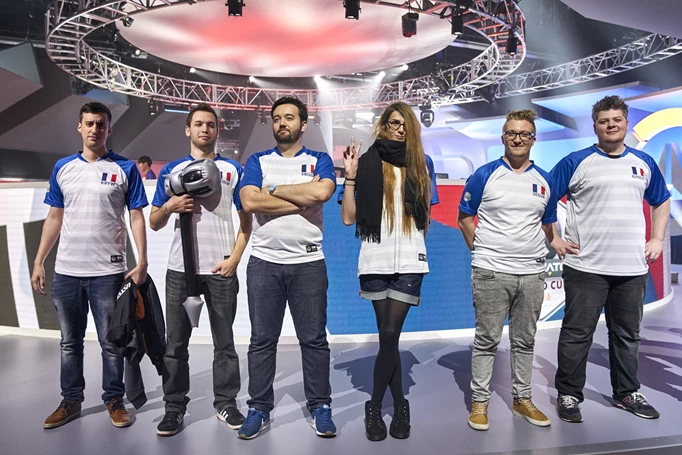
 Click to enlarge
Click to enlargeWhen the rosters were announced for the final sixteen teams that would attend Blizzcon, the percentage of votes and most played heroes for each member were also revealed. If you browse through the teams that cracked the top eight, almost all of them have mainly DPS centric lineups, players voted in who primarily played Damage heroes. This, of course, makes a lot of sense, DPS heroes are fun and exciting to watch, especially in the early days of Overwatch where flashy moments and solo-plays had a seemingly way stronger impact on the course of a match. It simply seemed easier to pull off back then.
Of the final eight teams, six of them featured squads that had three or more players that primarily played Damage heroes (or in Team Spain’s case, it was literally all of them). The two who weren’t Damage dominated? Team France, and Team South Korea.
Of the four voted in players, Jin-hyuk "Miro" Gong , Joon-hyuk "zunba" Kim, Jehong "ryujehong" Ryu, and In-jae "EscA" Kim, two were tanks, one was a support, and the damage player was the one who came in last for South Korea.
Of course, history would show us that this core would eventually become one of the greatest Overwatch teams of all time, and most certainly the best in the world during their prime. Miro’s innovative Winston in the Reinhardt dominated era that stifled his enemies, zunba’s terrifying Zarya that was unmatched by any other, the Almighty Ana-God ryujehong, and Lunatic-Hai’s star captain, EscA. The two additional pickups, Tae-yeong "TaiRong" Kim and Wonhyeop "ArHaN" Jeong, were members of AfreecaFreecs Blue, one of the strongest teams in South Korea at the time, and the eventual finalists of APEX Season 1.
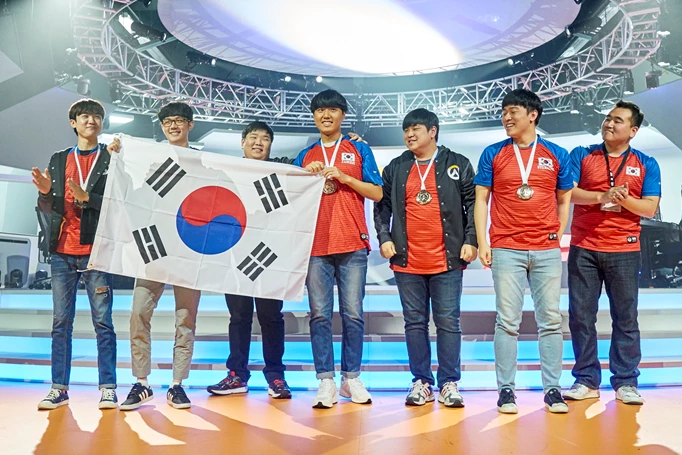
 Click to enlarge
Click to enlargeAll quotes have been edited for clarity and brevity. Translation by @gatamchun
South Korea’s 2016 roster was composed of a historic group of innovators. Players who revolutionized the way to play their best heroes and who shattered the ceiling on what top Overwatch was for a lot of the western audience at the time. When you look at the tournament in retrospect, well, of course, South Korea won in such a dominant way, they had some of the best players in the game. But, for someone who was there, who played in the tournament, and who actually won the whole thing, history actually tells us a bit of a fabrication.
In fact, for the former captain of team South Korea, TaiRong, the idea that South Korea was always going win was a bit further from the truth, at least for them. In reality, they themselves had absolutely no idea of their ability to match up against the best western talent at the time.
I was not sure how good Korea's Overwatch would be, so when I arrived in the U.S, I played with the focus of showing Korea's potential rather than the goal of winning the championship.
-Tae-yeong "TaiRong" Kim
“In fact, the majority of Korean Overwatch users, including the team, were pessimistic. At that time, it was clearly Western orgs that led the Overwatch esports scene, including Team EnVyUs and Reunited. If you look at the rosters of the countries, the majority of the leading pros were elected.”
It’s true. Not including South Korea, six of the top eight nations had a majority of players from some of the biggest teams in the game at the time. All of Team EnVyUs’s players were representing their home countries: FaZe Clan, NiP, Rogue, Fnatic, Misfits, so many of the game’s earliest elites were in attendance. Even if the rosters were fan-voted, for TaiRong, there was a lot of reason for concern.
“The concern was only for a moment, however. When we went into scrimmages, the results were overwhelmingly in our favour, and we started to gain confidence.”
Confidence is one way of putting it because it certainly does speak to a lot to your confidence when you start busting out the Symmetra/Torbjorn in your first match of the group stage.
However, the playoffs bracket was a different story from decimating Team Australia. In fact, if you were one of the many fans rooting for team USA because you loved Seagull’s Genji, or you genuinely felt USA had a good roster to overcome team SK, feel proud that you were right because TaiRong actually agrees with you.
“In fact, the only other candidate who could’ve made it to the final was Team USA. (They were the only team to keep South Korea from fully completing a map). All the teams we had encountered, we were to beat with relatively overwhelming individual and team plays, but it was the hardest thing to try that against USA. Despite what the score says, I was very nervous in the actual match, unlike how I was against the other teams we had met so far.”
Even after winning the first map convincingly against the U.S, TaiRong was still a little dubious. But it was zunba’s legendarily spectacular Eichenwalde Graviton Surge, that convinced him that the match was in the bag.
South Korea would prove victorious against every opponent, they did more than show their potential, they decimated any perception of competition between the two regions. For TaiRong, he recalled the pride and satisfaction he and the rest of the country felt with the win.
“In Korea, everyone cheered because it was the team's advancement and result that no one had expected, and it was also talked about among non-gaming communities in Korea.
“Since then, Team South Korea's victory or candidacy has been taken for granted, but I believe that the 2016 OWWC has begun to give Korean professionals and players a strong motivation, confidence, and that the view of Overwatch esports, which was biased towards the West, had become an important turning point as it began to spotlight Korea.”
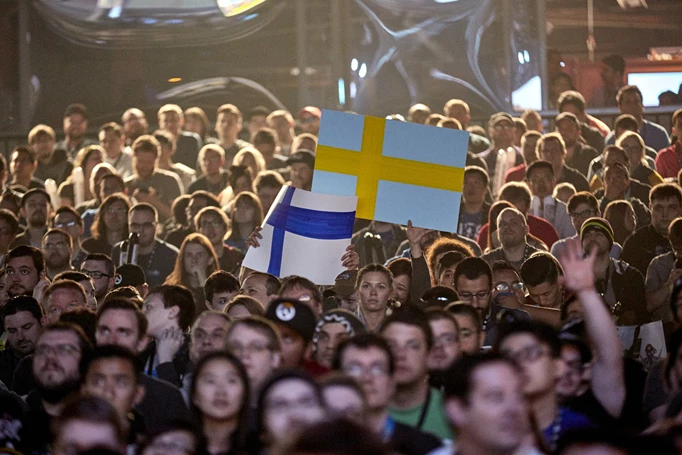
 Click to enlarge
Click to enlargeEven beyond the gold medalists South Korea, and what that roster was able to accomplish, the 2016 World Cup still has a lot to offer for anyone looking to relook at game’s historical footage. It’s always the case with tournaments from the early days of the scene, especially in 2016, but because of the fan-voted format, the World Cup is one of the few places to see those early stars of the game, shine on their most famous heroes. Interested in the OG Genji masters? Check out Russia v. USA in the group stage, Seagull vs. George "ShaDowBurn" Gushcha, a sushi chef matchup for the ages. Want to see the glory days of the former old-guard damage players? Check out the bronze medal match between Sweden and Finland, where André "iddqd" Dahlström and Timo "Taimou" Kettunen go head to head in the McCree battles.
If any of the names listed make you long for the former days of Overwatch, give the 2016 Overwatch World Cup a revisit. It really is one of the final snapshots of a “primitive” era of Overwatch esports, before Contenders, the Overwatch League, or even APEX became the primary ecosystem for the game. This World Cup takes place before EnVy’s win in Korea, that’s how old the gameplay and tournament is! It’s a trip down memory lane that’s worth the revisit, where the meta was simpler, and the crowd would cheer for amazing moments like these Taimou highlights courtesy of Akshon Esports.
While competitively it might not hold up to the standards of later iterations of the event, the 2016 Overwatch World Cup was a landmark for bringing the joy and excitement of competitive Overwatch to its largest and most inexperienced audience at the time. It was a starting point for the stories and talents Overwatch esports fans would come to know, love, and follow as time went on. It's one of the final tournaments of early Overwatch that truly encapsulate the early and chaotic energy that really made it feel like the impossible was possible in the game, where any player could single-handedly carry. Don’t discount the 2016 Overwatch World Cup, an event that TaiRong also wants to highlight as an incredibly important moment in Overwatch history.
“Now the 2016 OWWC is devalued as a ‘streamer's party.’
“Those who remember the national team's rosters and the evaluation of the Korean team would not be able to say that.”
Even if it is filled with gaffs, lopsided matches, and questionable play, the 2016 OWWC has to be remembered for its ingenuity, simplicity, and also the role it played in igniting the fuse that would eventually lead to the Overwatch League and beyond.
All images courtesy of Blizzard Entertainment
